Business
27-year-old Nigerian researcher, Inioluwa Raji, makes Time’s 100 most influential people in AI
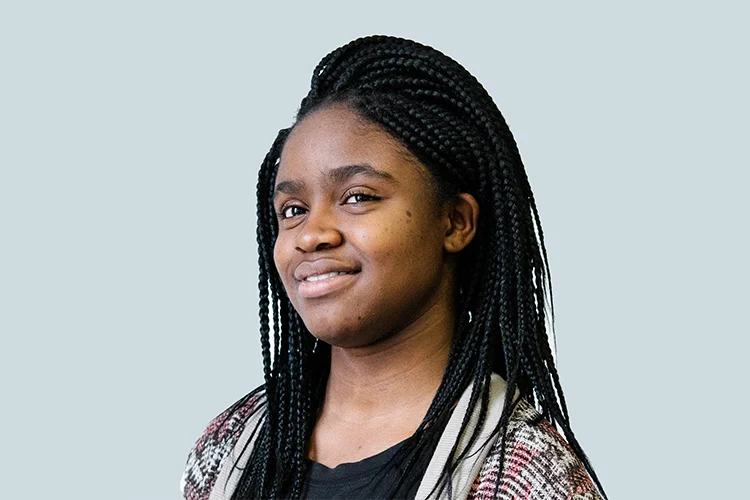
Nigeria’s Inioluwa Raji has been named in the inaugural Time Magazine’s 100 list of most influential people in artificial intelligence (AI).
The magazine, on Thursday, said this group of 100 individuals is, in many ways, a map of the relationships and power centres driving the development of AI.
The media firm said they are rivals and regulators, scientists and artists, advocates and executives — the competing and cooperating humans whose insights, desires, and flaws will shape the direction of an increasingly influential technology.
Raji, a fellow with the Mozilla Foundation (a global nonprofit focused on internet protection), was listed among the ‘thinkers’ category for inquisitiveness and passion for helping AI companies.
According to the report, the 27-year-old Raji was an intern at the machine-learning company, Clarifai, where she had an “alarming realisation”.
While helping the startup train a content-moderation model intended to filter out explicit images, she noticed that the model was disproportionately flagging content containing people of colour that was not explicit.
The AI enthusiast had raised the issue as the programme was “filtering the world to be whiter than it actually is”.
Time Magazine said Raji’s discovery also prompted a shift in her focus away from the startup world and toward AI research, where she began to focus on how AI companies could ensure that their models do not cause undue harm.
She intends to better understand and challenge products before they are implemented at broader scales.
“As a default, a lot of the models that we developed had (data) where a pornographic image that was supposed to represent the (explicit) content was more diverse than the stock images that were supposed to represent safe content,” she said in an interview with Time.
“If I would say we need more diverse data, the response I got was, ‘it’s hard enough to get any data, why would we be thinking about making more complex choices?’
“It became clear to me that this is really not something that people in the field are even aware is a problem to the extent that it is.”
Speaking on regulations and long-term effect and measures, Raji said it is up to developers to provide transparent evaluations of their products and the harms it poses.
“A company’s product is evaluated on a benchmark that tells a very nice, clean story. They’re not mandated to protect their users on anything from privacy to communicating honestly about how well the system will work for that user,” she added.
Raji, since her discovery, has worked with Google’s Ethical AI team to introduce a more holistic internal assessment process for artificial intelligence systems.
She has also collaborated with the Algorithmic Justice League to create strategies for “external auditing” on its ‘Gender Shades’ audit project, Microsoft, and Face++.
Business
Ghana’s inflation rises to 23.8% — highest in eight months
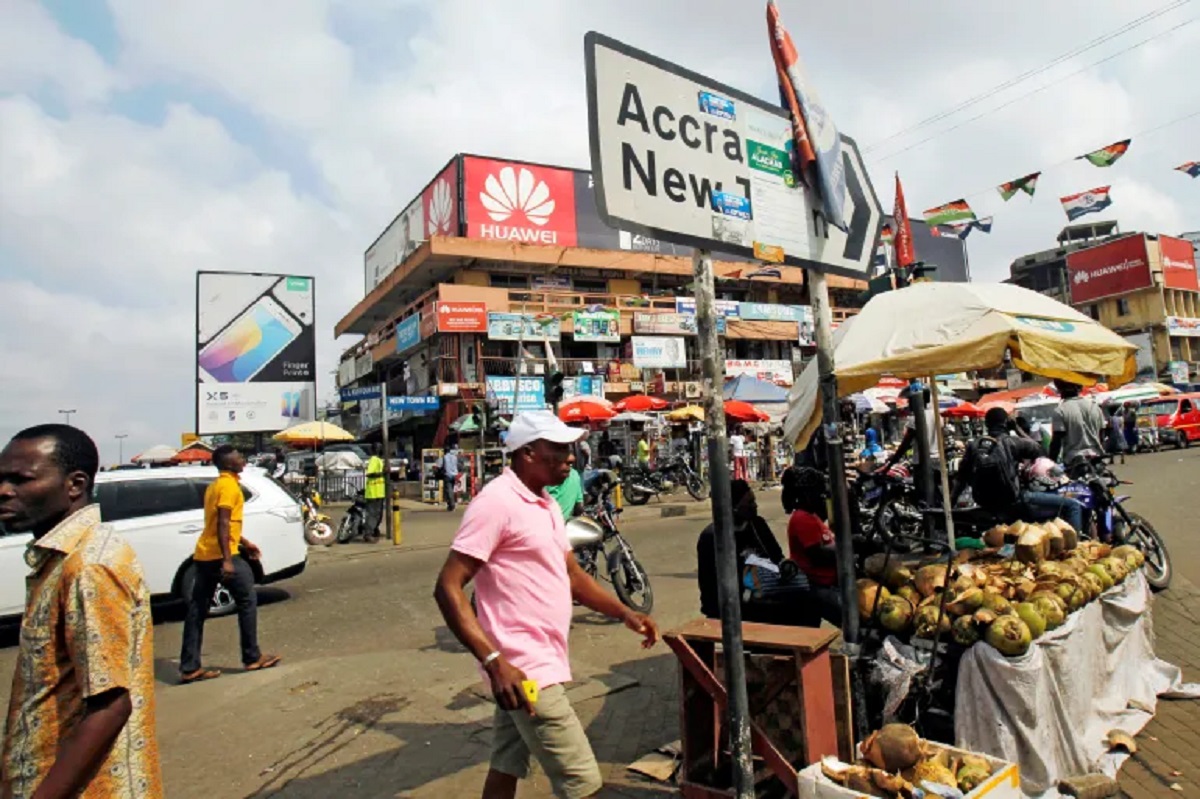
Ghana’s consumer inflation rate rose for the fourth consecutive month to 23.8 percent in December 2024.
Samuel Kobina Annim, government statistician at the Ghana Statistical Service (GSS), announced the figure to journalists in Accra on Wednesday.
Ghana’s inflation rate started rising in September last year, when it rose to 21.5 percent, then climbed further to 22.1 percent in October and 23 percent in November.
Annim said the inflation rate recorded at the end of last year was the highest in eight months.
“The rate of inflation… is the third highest in the last 13 months and highest in the last eight months,” Annim said.
Also, food inflation saw a significant jump, rising from 25.9 percent in November to 27.8 percent in December.
Annim attributed the increase to the contributions from specific food items, such as yams, showing drastic year-on-year price hikes of 63.3 percent.
He also highlighted the need for a dual approach to tackling inflation, addressing both monetary and real-sector issues.
“We do emphasise that there are two perspectives in addressing inflation. One is the monetary side… and the other is the real side, with what we’ve seen with food inflation, more particularly the food that we consume, that are locally produced,” he added.
Annim urged policymakers to focus on production, value chains, transportation, warehousing, and reducing post-harvest losses to stabilise food prices.
“Policymakers put in diverse interventions, rather than focusing on, let’s say, only exchange rate or focusing on just some selected items that do not cover the variety of food items that influence food prices,” he said.
Business
Governor Sanwo-olu signs N3.366trn 2025 budget
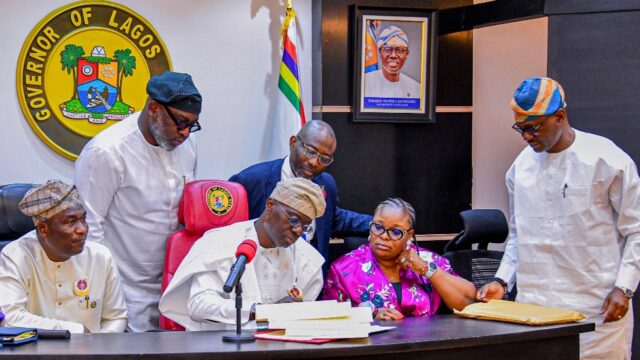
Lagos State Governor, Babajide Sanwo-Olu, on Thursday, signed the 2025 appropriation bill into law.
The Special Adviser on Media and Publicity to the Governor, Gboyega Akosile, made this known in a post on his X handle.
He said the budget size is N3.366 trillion meant for the continuation of the great works of the Sanwo-Olu administration.
Business
Italy extends work visa for skilled workers for 2025

Italy is taking steps to address its significant shortage of skilled workers by keeping its Work Visa for Highly Qualified Workers program open for 2025.
The country, which is known for its rich culture, food, and history, has faced increasing demand in sectors such as IT, healthcare, and green energy.
These industries are crucial to Italy’s economic growth, and the government is working to meet these demands by attracting foreign talent.
Italy is making considerable efforts to improve its labour market by introducing a series of policy changes to simplify the visa application process, DAAD Scholarship reports. The country’s Work Visa program is designed to bridge the gap between the available talent and the growing need for highly skilled workers.
Italy’s work visa aims to address skill shortages
The Work Visa for Highly Qualified Workers aims to address the skill shortages in key sectors, including information and communication technology (ICT), healthcare, and renewable energy. By opening its doors to foreign professionals, Italy hopes to fill critical positions that are difficult to staff with local workers.
This program is expected to boost the economy by bringing in skilled professionals who can contribute to sectors vital to Italy’s long-term economic stability.
The visa allows skilled workers to live and work in Italy while helping the country meet its industrial needs. In 2025, the visa is seen as a way to attract experts from around the world who can fill gaps in sectors where there is a high demand for specialized knowledge and experience.
Key changes to Italy’s work visa policies for 2025
Significant changes have been made to the Italian Work Visa policies to streamline the application process and ensure faster processing times. One of the major updates is the increase in quotas for non-EU workers.
- Last year, the Italian government raised the quota for work permits from 151,000 to 165,000. This adjustment reflects the increasing need for foreign workers across multiple sectors.
- Another notable change is the introduction of digital processes to simplify the visa application. By March 2024, the Italian government implemented digital contracts and the use of certified email (PEC), which have reduced the need for in-person visits to immigration offices.
- In July 2024, Italy also revised its EU Blue Card requirements, lowering the minimum work contract duration from 12 months to six months. Additionally, the salary threshold was adjusted to fall between 1 and 1.6 times the average gross salary in Italy.
The introduction of sector-specific permits for healthcare roles also occurred in October 2024. An additional 10,000 permits were introduced for family and social healthcare assistance positions to meet the growing demand in the healthcare sector.
Streamlined application process for 2025 work visa
The new application process for the Work Visa for Highly Qualified Workers in 2025 is designed to be faster and more accessible. The digital system allows employers to pre-fill applications for their workers, saving time and reducing paperwork.
The application process is simplified, with designated “click days” for submission, including February 5th, 7th, and 12th, 2025, depending on the applicant’s category, reports inform.
Once an application is submitted, both the employer and the applicant will be notified of the decision within a specified timeframe. Digital contracts and integration agreements also reduce the need for physical paperwork, further speeding up the process.
High-demand sectors for Italy’s work visa program
The Italian Work Visa for Highly Qualified Workers targets skilled professionals in several key sectors. These include:
- ICT: Software developers, data analysts, AI specialists, and cybersecurity experts are highly sought after.
- Healthcare: Nurses, physiotherapists, caregivers, and healthcare assistants are in demand.
- Green Energy: Engineers focused on renewable energy are needed to help Italy meet sustainability goals.
- Construction: Skilled laborers, engineers, and project managers are sought to address Italy’s infrastructure needs.
- Hospitality: Chefs, hotel managers, and tourism professionals are needed to support Italy’s vibrant tourism industry.
Where to find jobs with visa sponsorship in Italy
For those looking to apply for the Work Visa for Highly Qualified Workers, several job portals can help candidates find employment in Italy. Some popular websites where job seekers can find roles with visa sponsorship include:
The program offers a valuable opportunity for professionals in high-demand sectors to contribute to Italy’s economy and enjoy living in one of Europe’s most attractive countries.
-

 Business1 week ago
Business1 week agoAir France deboards French national in Abuja airport for unruly behaviour
-

 Entertainment1 week ago
Entertainment1 week agoLala Akindoju loses dad
-

 News1 week ago
News1 week ago‘He’s a dead man walking’ — military threatens to eliminate Bello Turji
-

 News1 week ago
News1 week agoCelebrating Excellence in Nigeria: The Icons of Resilience, Leadership, and Innovation in 2024!
-
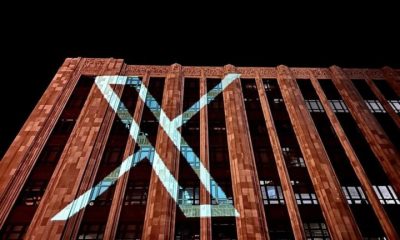
 Business1 week ago
Business1 week agoX to launch payment system this year
-

 News1 week ago
News1 week agoFire razes police station, three buildings in Lagos
-

 News1 week ago
News1 week agoBenin Republic summons Nigerien envoy over terrorism allegations
-
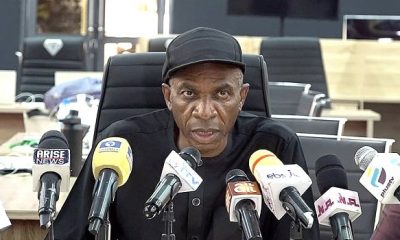
 Politics1 week ago
Politics1 week agoEdo PDP alleges plot to impeach LGA chairpersons over financial misconduct


















